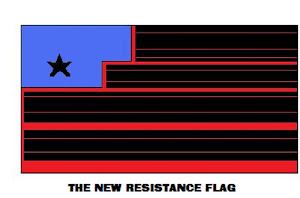Published: 11 January, 2012, 00:10
Wednesday, January 11, 2012
Anonymous declares Day of Action against NDAA (VIDEO)
US laundered millions for drug cartels
Marijuana plants are burned during an anti-drug operation in Guatemala (AFP Photo / Getty Images)
TAGS: Crime, Drugs, USA,Government Spending, North America
The Mexican Drug War has so far yielded around 50,000 deaths and has become one of the biggest problems poised on North America during the last century.
It might be a tremendous tally of lost lives, but just as impressive though is the amount of money that the US has invested in the war. Since attempting to cooperate in the battle against dangerous cartels in the south, the United States has moved millions of dollars of narcotics and profits around the world in a money laundering scheme meant to infiltrate the seedy underbelly of Mexico’s drug trade.
What America did, instead, was consequentially fund a deadly campaign that has left a bodycount built with the massacre of thousands of journalists, officers, agents and civilians.
Recent reports obtained by the New York Times reveals that American drug enforcement agents posed as money launderers in an elaborate scheme that was meant to install men within the ranks of the cartels and take them down from the inside. The documents suggest that American agents worked hand-in-hand with Mexican law enforcement officials and a Colombian informant working undercover in 2007 to try to get to the inside. Doing so, they participated in massive felonies, moving millions worth of contraband and cash all over the world.
According to the documents made possible through an extradition order by the Mexican Foreign Ministry, US efforts in conjunction with Mexican and Columbia contacts included a plethora of wire transfers of tens of thousands of dollars at a time and the illegal smuggling of millions of dollars in cold, hard cash. The Times reports that there was also at least one in-depth international incident that led to American agents accompanying a massive coke shipment from Ecuador, into Dallas, Texas and then Madrid,
Five years down the road, however, the Mexican drug war has been incredibly disastrous and all too deadly. While the number of drug war-related deaths in 2007 peaked short of 3,000, that statistic only worsened for the next several years, with 2011 showing the only significant decrease in casualties since then.
Even still, an estimated 12,000 people were killed during the war in 2011 alone.
By 2006, the Mexican drug cartels had already infiltrated American soil, operating out of an estimated 100 US cities. In 2007, the DEA-led initiative attempted to curb that distribution, but two years later the US Department of Justice upgraded the scope of the drug cartels’ presence in the US to 200 diverse markets. Between 2006 and 2007, assaults against Border Patrol agents on the US/Mexican boundary rose by 46 percent, with attacks on US authorities leaving at least two dead on US soil in the two years that followed.
While the DEA was conducting their attempted sting, agents were forced to improvise their moves in a deadly game of cat-and-mouse. While one official close to the matter talking on condition of anonymity tells the Times that such stings involve an “enormously complicated undertaking when it involves money laundering, wires, everything,” others add that the massive campaigns that seem to have failed massively required a strategy that left agents scrambling by the seat of their pants.
“The same rules required domestically do not apply when agencies are operating overseas,” Morris Panner of the Center for International Criminal Justice at Harvard tells the Times, “so the agencies can be forced to make up the rules as they go along.”
Panner acknowledges the dangers created by working in such grey territory, adding that “If it’s not careful, the United States could end up helping the bad guys more than hurting them.”
Only less than five years after the operation has ended, America is just seeing by way of the document leak that their attempted investigation might have really been detrimental to their efforts.


